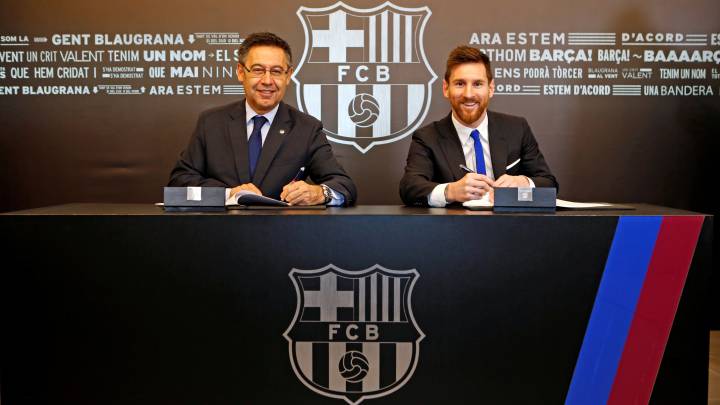The author of this piece, Ahmed Sultan, is an HR expert with over 15 years in leadership positions within lead multinationals in the fields of FMCG’s, telecom and education. He has led and managed various, diverse projects in Egypt, Europe and North America in both general offices and manufacturing facilities. Being exposed to all disciplines of the Human Resources management – from startups to closures – Ahmed is recognized as one of the top HR professionals in the Middle East.
Football, soccer, or whatever you want to call it, has moved over the past 3 decades from entertainment to becoming one of the inspirations of management techniques through studying achievement and failures.
Other sports like basketball, American football and baseball have taken the lead and managed to institutionalize the sport. However, football remains to be the most influential sport, and the closest to people’s hearts in Europe, Africa and Latin America.
With Messi approaching a cross-route with Barcelona, and after years of success, the question that jumps into the minds of his fans and the public is: why is he leaving now? and why is he leaving that way?
Below are 3 reflections on our working lives; one that tries to explore the insights and understand the reasons behind the “Messi” dilemma.
Ivory Tower CEO’s, Do they really Know What Is Happening?
Joseph Maria Bartomeu, is a successful entrepreneur who became the 40th president of Barca. Despite being part of Barca’s top management for more than a decade, it seems as though he is acting like the “I know it all CEO”. As a leader of a successful organization, you need to connect with your key players personally. You need to look at big corporations and realize that successful CEO’s spend their ‘9 to 5’ doing only two major business driving pillars: addressing the people’s needs and addressing the investors needs.
Unfortunately, it seems the Barca president was only focusing on the latter almost as if contracting top notch players and paying them fortunes will do the whole job. That is a wrong assumption because the ability to connect, the investment of time to understand, and to be part of the team is almost what derives the optimum performance and results.
Mediocracy In Management Is Your Vehicle Downhill
You might be happy to have flyers or excelling talents in your team, as a matter of fact ‘flyers create change’. But you need to make sure you have flyers across from the upper management down to the lowest point in the pyramid of corporate hierarchy. Accepting mediocrity with strong teams is a recipe for failure. In a competitive environment, whether in sports or corporate, your competitors will study you. In fact, they will put all the resources to counter your strength and punch you hard on your weak links!
Having flyers on the attack squad and mediocre on the defense will never get you to the golden triangle; regardless of how strong your offence is. This is simply because the system needs to be synchronized and harmonized. If not, your flyers will get bored and will off-board your ship at the first stop.
Strong talents don’t want others to drag them down, they always want to be challenged and to be surrounded by a strong squad. Look at Champions League winner for 2020 – Bayern Munich, a strong team that makes every member a star in his position, and everyone plays his role to the maximum of his ability.
Strong Leaders Attract Strong Players
What is special about Guardiola Vs. Valverde? My guess is that Guardiola has the ability to tame strong talents, he inspires them, he links the players’ victory to his success and makes this connection clear. He envisions, engages, and energizes his player regardless of encounters and challenges.
When you get a talent like Messi with all the technical skills he has, you need to control him- in a good sense- via an inspirational leader who can make use of his talent. The investment should be beyond Messi’s own imagination. A leader that supports you regardless, is a true leader and he or she will make you work for him and not just the institution. People don’t work for an unsupportive boss, they work for leaders who inspire them through leading by example.
They work for the type of leader whose strong and effectual behavior actually drives employees’ career prospects and leads them to reach new heights. Bad bosses compel good employees to leave their job, When you quit, you quit the bad manager, not the company.




























